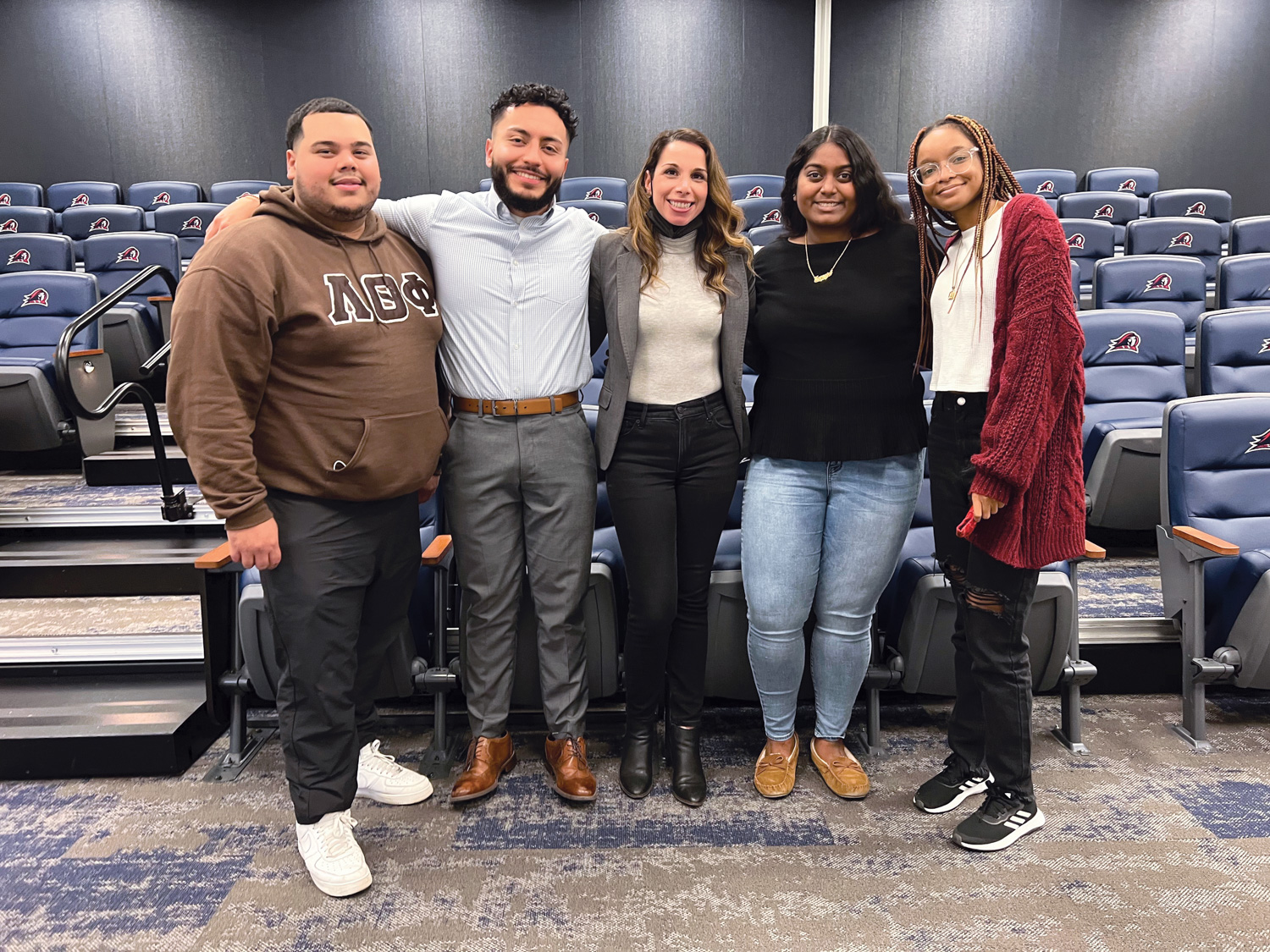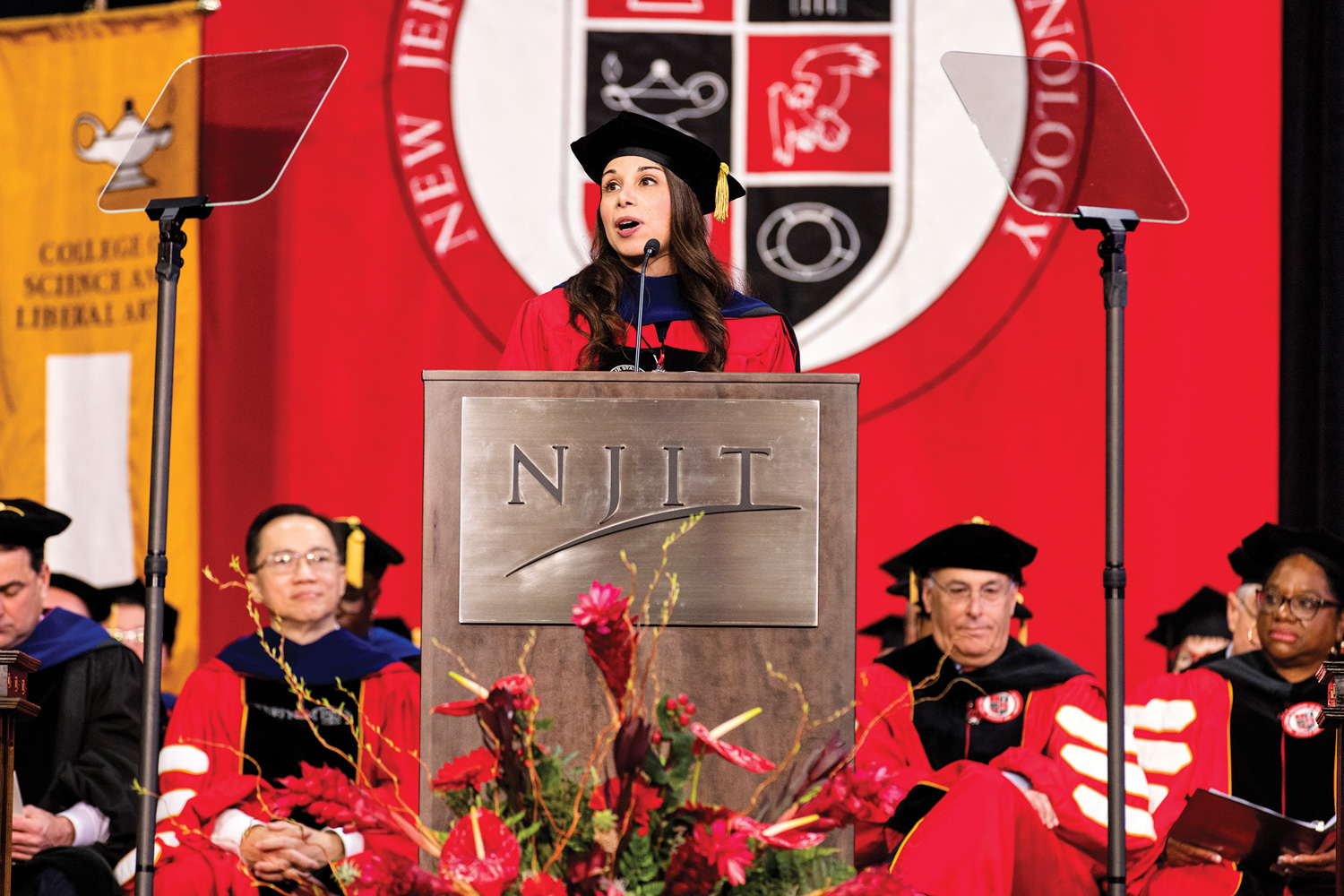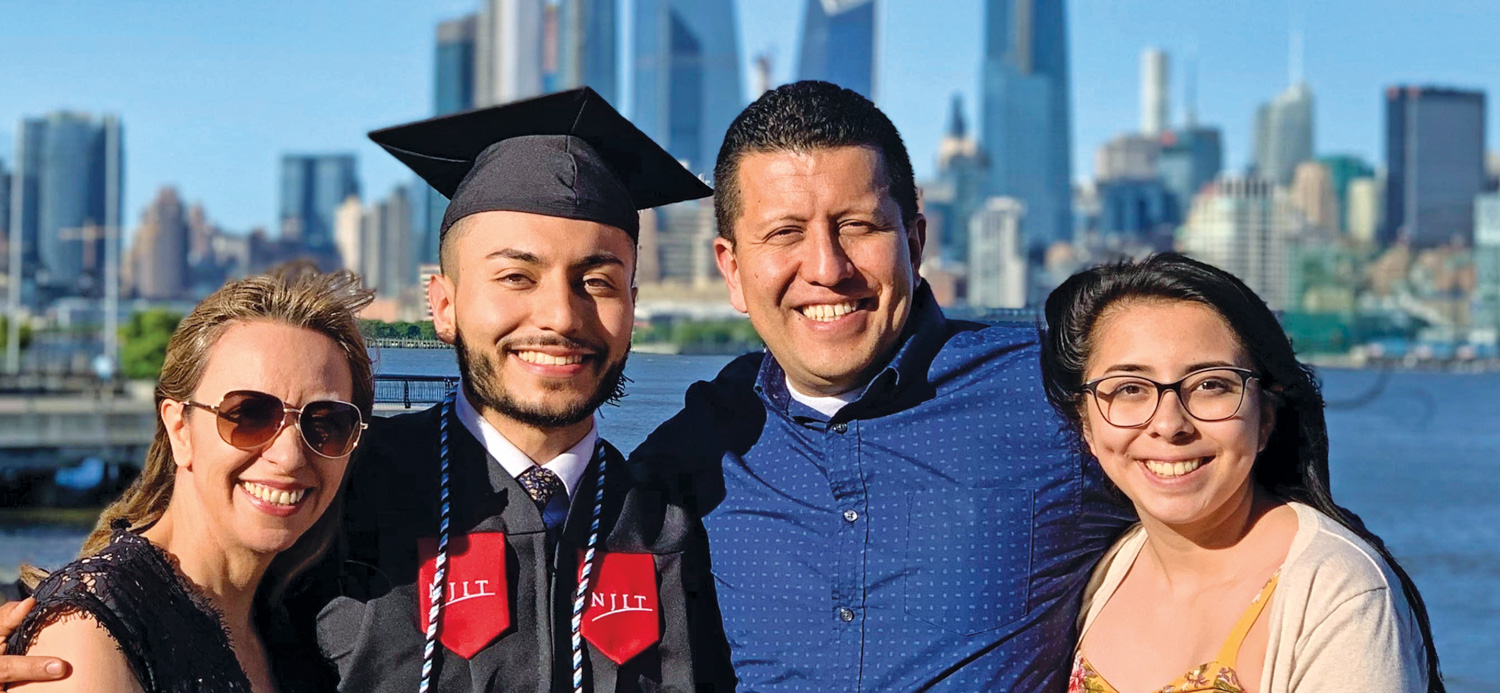By Theta Pavis

third from left, with students from First Fellows at a campus event.
Photo: Courtesy of Nick Fuentes-Zuluaga
Hard-core hiking isn’t everyone’s first choice for relieving stress, but it works for Nick Fuentes-Zuluaga ’19. Tired of being stuck at home during the pandemic, he picked a new challenge: climbing 14,000-foot mountains in Colorado. It doesn’t surprise those who know him, since he has been setting big goals ever since he enrolled at NJIT as a first-generation student majoring in mechanical engineering.
“He really wanted to grow as a student, but also as a person,” recalled Grazia Gangitano, executive director of NJIT’s Office of Student Transition, who became one of Fuentes-Zuluaga’s most important mentors. “He had all the intrinsic motivation, but he wanted guidance. An important part of being a mentor is listening.”
Gangitano met Fuentes-Zuluaga at a meeting for first-gen students that she and another colleague organized. Eventually, Fuentes-Zuluaga helped turn that cohort into a recognized student organization — First Fellows. Today First Fellows is still active, Gangitano is the organization’s adviser and Fuentes-Zuluaga is still giving back to NJIT. He’s hosted career development workshops, is actively mentoring students and recently became co-chair of the Hispanic Latinx Leadership Council.
Fuentes-Zuluaga, who minored in business at NJIT, found kinship with fellow first-gen students. “I realized I wasn’t the only one dealing with being the first in their family going to college. I wanted to create a supportive community. Meeting Dr. Gangitano was the catalyst for me. She was the match that lit the flame for me to build First Fellows and drive my career forward.”

Photo: Courtesy of Nick Fuentes-Zuluaga
The two also had a lot in common; Fuentes-Zuluaga’s family came to the U.S. from Colombia when he was just 2. Gangitano herself was a first-gen college student, raised by parents who emigrated from Sicily. Both clearly share a love of learning. In 2021, Gangitano earned her Ph.D. from Montclair State University in counseling education, while Fuentes-Zuluaga graduated with a master’s in data science from Stevens Institute of Technology in May. Both also have a fierce determination to give back and take on leadership roles.
“You are in a position where you can help others now,” Fuentes-Zuluaga said. “I thrive off of seeing people excel, and want to give back to other students.” After graduation, he worked in pharmaceutical health care, then transitioned to pharmaceutical technology. He currently works as a senior solutions manager at Medable, a digital clinical trials company that leverages technology and software, enabling effective therapies to reach people faster.
Gangitano said her father had hoped to finish high school when he came to the U.S. at 17, but the language barrier made that hard. One thing she has learned is that students want to see someone that looks like them succeeding. “They look to others, not just professors,” she said. In fact, her dissertation explored the real-life experiences of first-gen college students in STEM.

The benefits of mentoring also go both ways, she added. “Mentors learn a lot too — I learn about motivation, public speaking — it’s reciprocal. I lead by doing this and giving back. I like to see people succeed.”
“She walks the walk,” Fuentes-Zuluaga said. “During my undergrad — two, three times a week — I was in her office. She helped me with figuring out extracurriculars, finding a job, doing an interview, and when I was struggling with classes. She coached me through the process. Negotiating salaries and interviews. She has done that with hundreds of students.”
Meanwhile, he still looks for active ways to cool down. “My most recent hike was in Yosemite National Park, where I summited Half Dome. And that included using ropes!”

Photo: Courtesy of Nick Fuentes-Zuluaga
Sharing Success
Peer Mentoring is a big part of student success at NJIT. An active program for first-year students, there are 45 peer mentors for approximately 1,800 students. Other programs run at individual schools, from the Albert Dorman Honors College to Ying Wu College of Computing. Career Development Services also offers
peer mentoring.
Last year, the Office of Student Transition began a small pilot program called Highlander Helper to offer additional mentoring to first-year students. NJIT employees in a range of offices — from the campus police to human resources — signed on to mentor eight students. Ryan Baldwin, associate director for learning communities and first-year initiatives in the Office of Student Transition said, “The initiative was to provide students with someone who may not be in their typical support network but can still be a great sounding board and guide on important topics as the student transitions to college life. Conversations focused on things like self-confidence, advocacy, career exploration, adulthood/learning how to be more responsible, and goal setting.” The program is running again this year.
The Albert Dorman Honors College (ADHC) offers the Passing the Torch Mentoring Program. It provides interested first-year students an opportunity to be paired with a current Dorman Scholar. Last year about 100 scholars participated; students were paired based on majors or interests. Another program is run through the Women with STEAM initiative within the ADHC. It matches alumni with students.